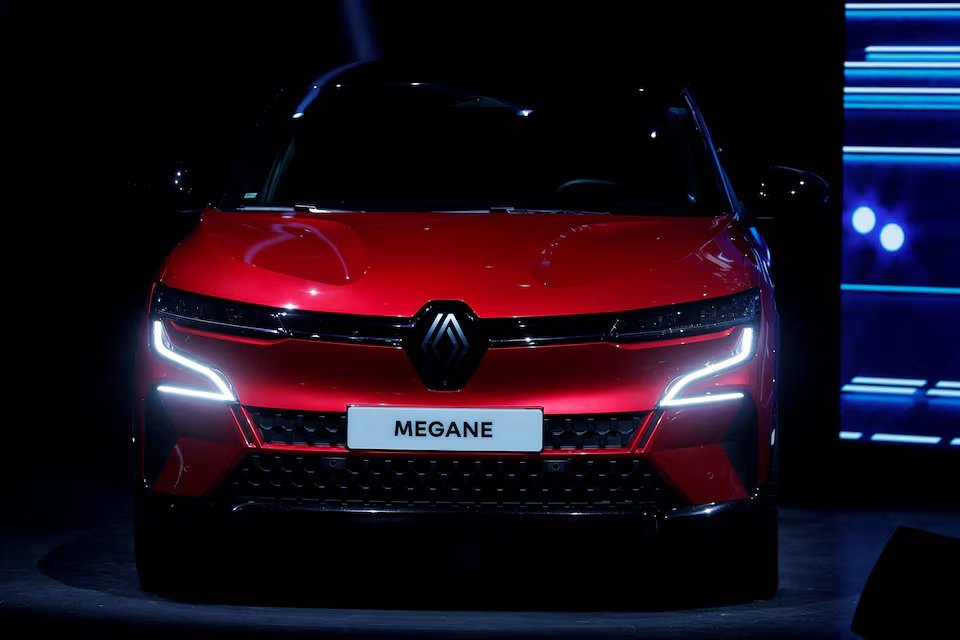
A Renault Megane E-Tech 100% Electric car is displayed Renault Group capital market day for its new electric vehicle unit Ampere, in Paris, France, November 15, 2023. REUTERS/Gonzalo Fuentes/File Photo Purchase Licensing Rights
The French government will reduce its assistance for the purchase of electric vehicles by a third and will toughen penalties against high-CO2 emitting vehicles, according to its 2025 budget proposal presented on Thursday.
"Thanks to the economy of scale and to progress on batteries, the cost of electric vehicles has gone down and their share of total vehicles sold has increased, reducing the need for subsidies," said the finance ministry.
"Assistance for the purchase of clean vehicles will decrease to 1 billion euros ($1.09 billion) in 2025," the ministry said, adding: "It will prioritise financing for the most modest households."
Currently, 1.5 billion euros ($1.64 billion) is allocated to the programme, which provides for a bonus of up to 7,000 euros ($7,634.20) for an electric vehicle and financing for leasing, which allows lower-income households to access an electric vehicle starting at 100 euros ($109.06) per month.
The ministry did not specify how the cuts would affect the bonus, lease numbers or the share of funds allocated to each part of the programme.
Representatives for the automobile industry said government assistance was still needed because electric vehicle sales had stagnated at 17% in the French market, and automakers need to sharply lower carbon dioxide emissions for vehicles they sell if they want to avoid heavy European fines.
"If you want to meet the moment of the electric transition, it must take place with incentives," Luc Chatel, the president of the Automobile Platform, told reporters. "If you change the rules every four days and you reduce the bonus, what will happen? We saw it in Germany."
Electric vehicle sales in Germany plummeted after the country ended its subsidy program at the end of last year, with the share of electric vehicles falling to 12.6% at the beginning of this year from 16.4% during the same period last year, according to transport authority KBA.
The move would come as European automakers struggle in the face of weakening global demand and competition from Chinese imports.
The budget also calls for penalties to be triggered for 5g/CO2/km in 2025, and then 7g/CO2/km in 2026 and in 2027.
